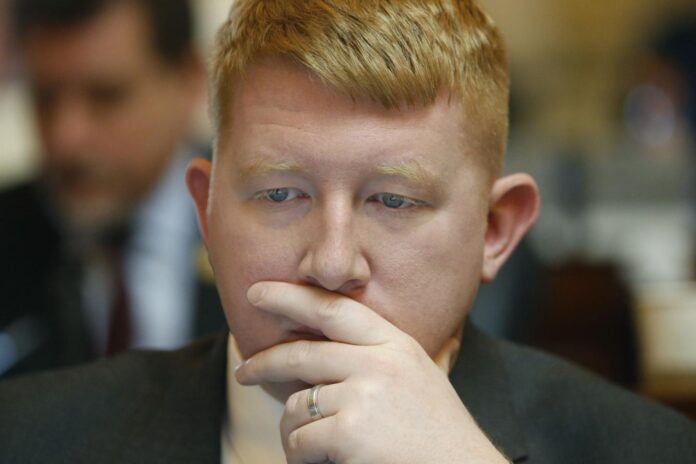Del. Lee Carter wants revenue from the possible legalization of recreational marijuana to be used as reparations for Black and Indigenous Virginians.
The idea of legalizing recreational marijuana use in Virginia has picked up steam after the Joint Legislative Audit and Review Commission (JLARC) released its report on the subject and Gov. Ralph Northam said he will introduce and support legislation to legalize marijuana.
“Every single penny of tax revenue from legalized cannabis should go to reparations,” said Carter, D-Manassas. “That’s a moral commitment our history demands of us and a necessary first step.”
The JLARC report estimated tax revenue could reach up to $62 million in the first full year of legal marijuana sales and climb to between $154 million and $308 million by year five of legalization, depending on the tax rate.
Carter said he wants to establish a Governor’s Commission on Reparations to determine how marijuana tax revenue should be spent and to explore more extensive avenues for reparations.
The commission, he said, would “explore the vast array of historical injustices against Black and Indigenous Virginians.”
“The impending legalization of cannabis presents an opportunity for Virginia’s government to begin making amends for its complicity and active participation in some of the most horrific human rights abuses in this nation’s history,” Carter said.
Thomas Jefferson Institute for Public Policy President Chris Braunlich doesn’t endorse the idea of assigning tax revenue to specific sources because once revenue is vested in something, it is harder to reroute the tax revenue later.
If revenue is to be “assigned,” Braunlich said, it should be assigned with related expenses, not something broadly defined.
“For example, the proceeds might better be used for health purposes (drug treatment and rehab, mental health, etc.),” Braunlich told The Center Square in an email. “To the extent Mr. Carter is intent on race-based expenditures, he should be reminded that Virginia’s black population is also disproportionately affected by health issues.”
Olivia Naugle, a legislative analyst for the Marijuana Policy Project (MPP), told The Center Square that states that already have legal marijuana have used tax revenue on various programs, including public education, mental health and drug abuse prevention services, and dropout and bullying prevention programs.
Neither the House Democratic Caucus nor the Senate Democratic Caucus have endorsed legalizing recreational marijuana. House Speaker Eileen Filler-Corn, D-Fairfax, said House Democrats would review the study and listen to feedback from constituents and stakeholders before deciding how to move forward in the Legislature.
Jason Schaumburg – The Center Square

